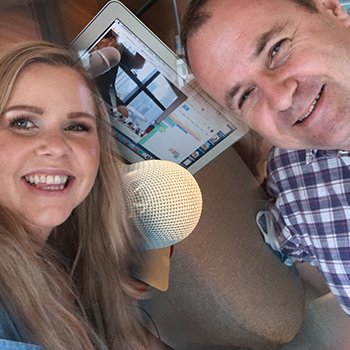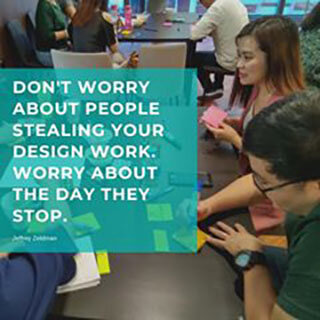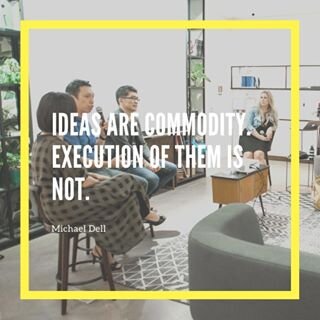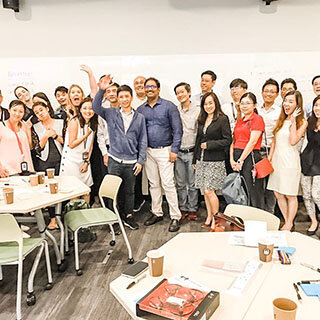
Entrepreneur Interview Series: A Formal Sit Down Interview with my friend Hugh Mason – Serial Entrepreneur, CEO & Founder of JFDI Asia
Earlier this year, I invited my good friend and serial entrepreneur Hugh Mason to Collision 8 to share some of his amazing insights with our community of aspiring entrepreneurs at Startup2Life. Hugh built over 70 agile business ventures over the last 25 years. Since the decade that we’ve known each other, this was our first time to do a formal sit down. Hugh and I worked together on different occasions at Joyful Frog Incubator (JFDI) where he is the Founder and CEO. These are 3 pieces of wisdom Hugh had to share with us:
1. Know Your “Why”
Similar to us, Hugh is also a big proponent of knowing your “Why,” based on Simon Sinek’s self-help book that encourages business leaders to find authenticity by focusing on their company’s purpose. The book cites as example EpiPen, the life-saving drug that treats severe allergic reactions and whose wholesale price increased about 500% in a decade. If only the company’s “Why” was to help patients with severe allergies, it wouldn’t raise the price out of reach for most consumers. This decision revealed the company’s “Why” was for profit above purpose. Hugh: “You can invent the ‘What’ and ‘How’ but until you understand the ‘Why’ it’s not going to work.”
Reflecting on his own entrepreneurial journey Hugh asked himself why he chose this path a couple of times. “Growing up in the early 70’s in Britain, my father went to work in the motor industry on a Monday, not knowing if he had a job on Friday,” Hugh recalled. “Early on, I realized that nobody can offer me job security.” Being purpose-driven is important to customers because it appeals to their limbic system, making them more willing to spend time and money for brands that align with own personal mission, as well as help employees’ productivity and motivation.
2. Apply the Lean Startup Method
Since a vast majority of startups fail, Hugh says one of the easiest ways to start with is apply the Lean Methodology. In 2011, Eric Ries published the book “The Lean Startup” which talks about methods and tools in achieving business success. One of the key takeaways of the book is validated learning, by which a person or company measure their success and output through experiential lessons. This build-measure-feedback loop stops wasting society’s most valuable resources such as time, ideas and people’s skills. As a Lean-Startup Aficionado myself I loved hearing Hugh’s experience and insights on this.
One of the biggest marketing failures of all time was when Coca-cola changed their flagship formula in 1985. There was no significant market research showing that consumers wanted to change the formula. After a wild outrage from their loyal drinkers, the company had to retract quickly. “There’s honorable failure, when sometimes the market turns out to be more complex than it appears,” Hugh said. “Then there’s stupid failure, when after launching you find out that customers don’t want your product.”
3. Learn how to deal with failure, stress and anxiety
I asked Hugh, “Being an entrepreneur is hectic and chaotic. How do you balance personal and professional life? What about the anxiety?” In 2015, he wrote a blog entitled, “Startups Inside Out – Understanding The Emotions Of Entrepreneurship” where he revealed that he had undergone 8 years of psychotherapy to help him overcome stress, anxiety and depression. Another serial entrepreneur who talked about failure openly was James Altucher, an American venture capitalist, author and podcaster. In his 2015 TED Talk, he described a point in his life when he was on the ground, crying and thinking of suicide so his family can benefit from his life insurance. Altucher said, “There’s almost too much failure pornography nowadays. They keep saying ‘It’s okay to fail,’ but it’s really unpleasant.”
Instead, Altucher recommended thinking of failure as an experiment that can be overcome in 5 ways: improving physical health (move for at least 10 minutes a day), improving emotional health (surround yourself by people you love and trust), improving spiritual health (practice gratitude), capturing brilliant ideas (write 10 ideas a day) and giving without expectation (give ideas for free). Hugh added, “It’s vital that our community talks about the challenges openly because, as entrepreneurs and innovators, we have chosen a working lifestyle that is a little bit stressful sometimes, to say the least. It comes with the job. We need help to make sense of that.”
Hugh ended by reminding our 6Weeks2Startup viewers to start with a solid reason, purpose, and strong “Why.” And to know that entrepreneurship will be hard and filled with anxiety and stress, so to acknowledge that and seek support through a community such as this one, a mentor and family. Watch the full interview here.









